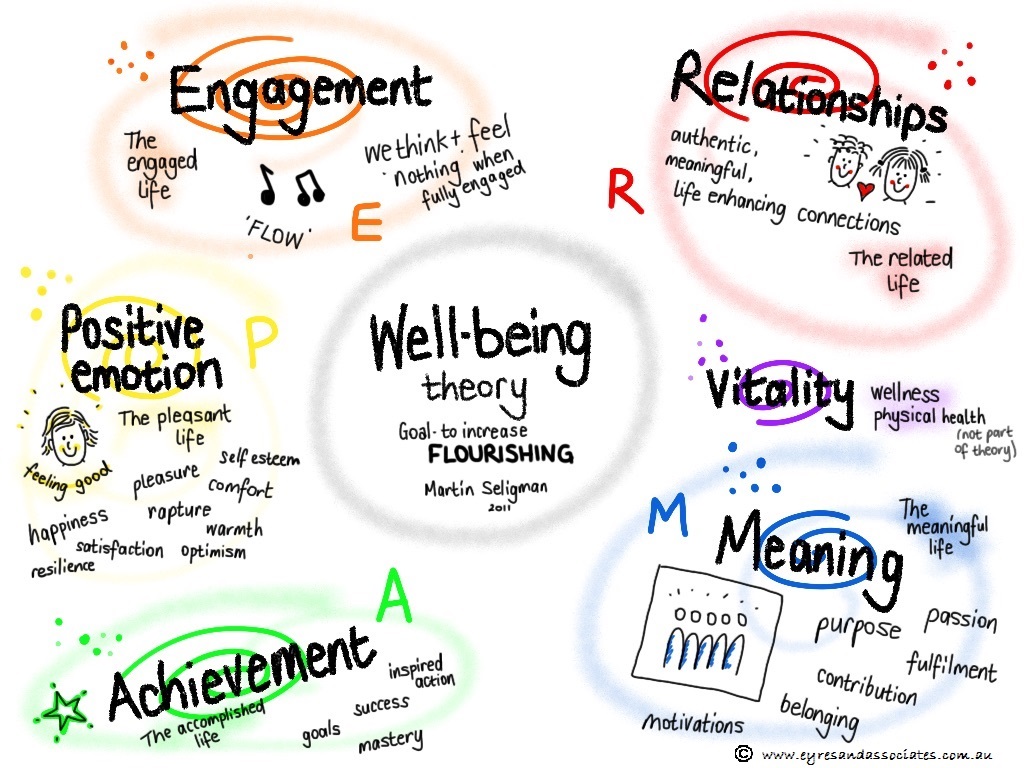
This week our focus will not be on a character strength, but on the “P” of our PERMA model. P is for Positive Emotions and there are quite a few Character Strengths that can be associated with Positive Emotions. Learning about emotions, both positive and not so positive, helps expand our wellbeing literacy.
“Wellbeing literacy is defined as a capability to comprehend and compose wellbeing language, across contexts, with the intention of using such language to maintain or improve the wellbeing of oneself, or others or the world.” (Oades, Jarden, Hou, Ozturk, Williams, Slemp & Huang, 2021)
Positive psychologist Professor Martin Seligman has spent many years researching ‘happiness’. Positive Psychology suggests that happiness is the natural result of building up our well-being and satisfaction with life. His studies have helped him identify 5 building blocks of well-being. Each of these elements is essential to our well-being and satisfaction with life. Together, they form the solid foundation upon which we can build a happy and flourishing life.

He calls his model the PERMA model and this is the model that we use at Barwon Heads PS :
- P – positive emotion
- E – engagement
- R – relationships
- M – meaning
- A – achievement (accomplishment)

Thanks to “Discovery in Action” for these words and infographic.
This week we focus on Positive Emotions
Positive emotion is more than just ‘happiness’. There are a range of positive emotions, including amusement, hope, interest, joy, love, compassion, gratitude, and pride. Part of our capacity for experiencing positive
emotions is genetic, but all of us have the ability to purposefully experience more positive emotion.
You can build positive emotion by:
• Taking time to find things you are grateful for in your life and reflect on what is going well and how you have contributed to those situations.
• Spending time with people that you care about
• Doing activities that you enjoy, such as hobbies or pastimes
• Play with your family members, your pets or your friends
• Listening to uplifting music that you love
• Exercising. It can help raise your levels of positive emotions, as well as keep you healthy
Having an attitude of optimism which is critical to building resilience.
Positive Emotions (1.20)
Barbara Fredrickson has led much of the research into Positive Emotions. This is a 5 minute interview with her where she explains her findings and that of other positive psychology scientists.
The Happy Owls read aloud
Proactive Mental Health – PEMA (2.25)




